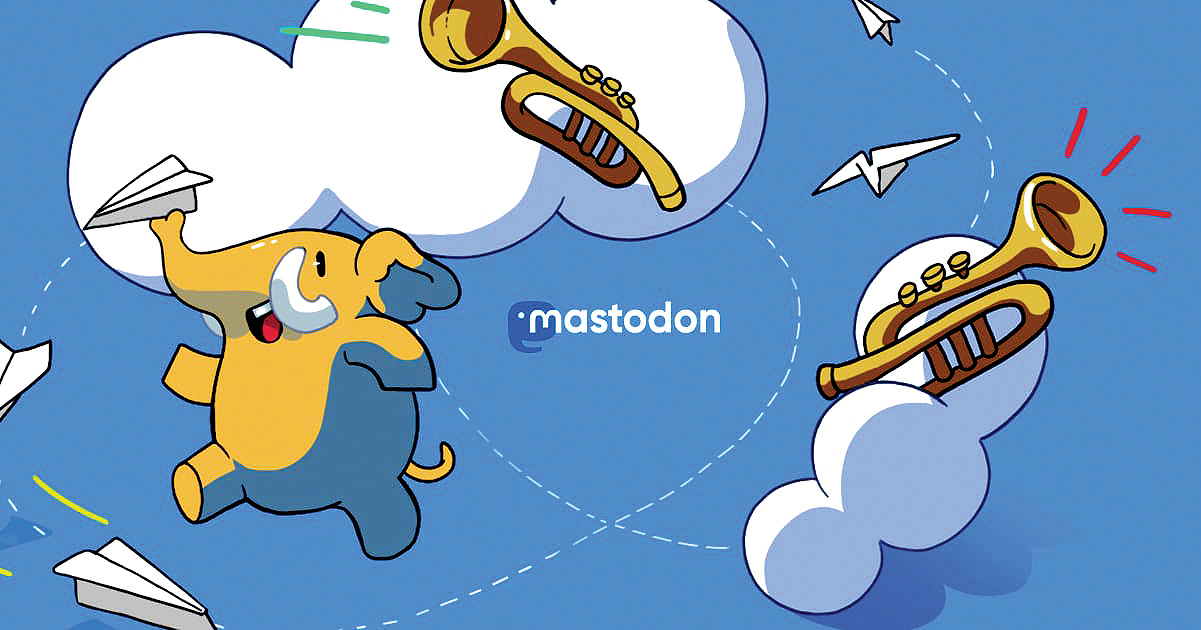Outraged by its alleged bias, users are abandoning Twitter India to sign onto alternative platform Mastodon
NISCHAI VATS
@nischaivats
It hasn’t been a smooth ride for Twitter in India in November, as hundreds of users are abandoning the micro-blogging website over its alleged discriminatory policy against the minorities and those who oppose the Hindutva forces. With claims of Twitter being non-transparent, undemocratic and prejudiced, the platform’s image in India has certainly taken a beating with journalists, activists and lawyers as vocal critics.
The story started when Supreme Court’s senior advocate Sanjay Hegde’s Twitter account got suspended after a couple of posts got reported. In response to this, the lawyer joined an alternative platform named Mastodon and in solidarity dozens of users started migrating.
There has been widespread concern over Twitter’s non-transparency and method of working of Twitter, especially the allotting of verified blue ticks in the past, with a recent case being that of Jay Shah, son of Union Home Minister Amit Shah. Reactions to the discriminatory policies of Twitter gave way to several hashtags to suspend the platform like #suspendtwitter #toxictwitter #mastodon #CasteistTwitter, #JaiBhimTwitter and #cancelallBlueTicksinIndia.
Before joining Mastodon, users tweeted the information and invited others to follow suit. One user said, “I have mentioned my #Mastodon account here. If you have a Mastodon account please follow me. Let’s get out of this toxic Twitter”. “Because @TwitterIndia is suppressing dissent, selectively suspending liberal accounts, throttling the reach while taking no action against those who are spreading hate/violence, many folks have migrated to #Mastodon,” wrote another user.
A Supreme Court lawyer Nitin Meshram tweeted, “Blue check marks on @Twitter have become a caste pride in India. It’s a matter of caste divide, assertion & privilege. If you are other than SC-ST-OBC, you would easily get it but if you are SC-ST-OBC, you won’t get it due to #ManusmrutiTwitterRules.” The Tribal Army (@TribalArmy) tweeted against the discriminatory policy of giving blue ticks/making verified handles and said, “If you can’t give blue tick to all then simply remove all. We want equal rights #cancelallBlueTicksinIndia”
Even the new platform Mastodon tweeted against Twitter saying, “Publicly traded for-profit corporations have one interest and one interest alone: keeping their shareholders happy. Twitter doesn’t care about transparency, and it certainly doesn’t care about meaningful change that doesn’t translate to increased dividends. #SuspendTwitter”
Eventually it was the new platform Mastodon which gained popularity and started trending in India. A micro-blogging site launched in 2016 by Eugen Rochko, who is now 26 years old, claims to be a decentralised platform where many servers function at the same given point of time and all have their own rules, unlike Twitter where the hub is stationed at the USA. Several features like publishing posts, following others, are similar to that of Twitter but the latter has more than 300 million users while Mastodon claims to have 2.2 million users globally. On mastdn.social, the number of weekly new users shot up to over 26,000 in the first week of November, as compared to just around 3,000 earlier. Rochko told Quartz India, “Moreover, the previous number of weekly active users on mstdn.social was 19,739, whereas in the first week of November it was 44,433.”
Explaining the new platform, Pratik Sinha, co-founder Alt News told Patriot, “Mastodon is an open source, anyone can host an instance. You own your own data. It’s a decentralised network, which means Twitter being broken into multiple parts and to visualise that you own your own part and that is how one ensures their own data privacy, and this decentralised way of handling things is not limited to Mastodon, there are other services like matrix which work on same principle.”
Detailing about the behaviour of Twitter, Sinha said, “There is a huge issue of lack of transparency and their process is very opaque, people who get suspended very often are not told that why they have been suspended even when they have done nothing wrong. A platform which claims to be democratic and gives space to every voice shouldn’t have such opaque process.” Sinha also cleared that there’s no data to prove whether Twitter is “biased or not”, but the functionality is certainly not transparent.
Several news portals like The Wire, and The Caravan have joined Mastodon after Twitter faced severe criticism. Senior lawyer Hegde has issued a legal notice to the Twitter India as he claimed that his fundamental rights to speech has been infringed. Twitter cited depiction of “hateful imagery” as the reason to block Hegde’s account on October 27 as he had posted the picture of August Landmesser wherein he refused to the Nazi salute at a rally, when everybody around him was doing it. Post a massive uproar in the social media, Twitter India restored his account but again suspended it a day after, and this time for sharing the poem titled “Hang Him”.
When Patriot reached out to Hegde, he said, “My suspension has been manufactured, I accept the fact that as I didn’t have a verified account, the AI (Artificial Intelligence) bot could have temporarily suspended it but after I filed a legal notice against Twitter India in Supreme Court, the platform should have responded but I haven’t heard anything from them.”
Hitting out at the biasness of Twitter, Hegde further claimed, “The kind of hate speech right wing verified accounts are indulging in, Twitter seems to be helpless in not taking any action. So, there is disproportionate action on one side and no action on the other and that creates an impression that they are not a neutral platform.”
Hegde also migrated to Mastodon and found it much better than Twitter; he said, “We find it currently a rather pleasant place where we have greater control over the experience and where ultimately our data is our own and it is federated, unlike the centralized servers like that of Twitter which can lock us out at any given point of time.”
After seeing a negative reaction towards Twitter India, the Mastodon creator Eugen Rochko on November 10 updated their policy and posted that their platform is against any form of castesim: “As promised, mastdn.social code of conduct has been updated to add “casteism and advocation of casteism” to the list of explicitly prohibited offenses.” It received a good response amongst the users and the changed market behavior has been benefitting Twitter’s rival.
Senior journalist Saif Ullah Khan, who also recently joined Mastodon, told Patriot about Twitter India’s prejudice said, “Twitter has definitely been biased while tackling hate. It has given a long rope to the right wing. Recent case in point being a sane voice like Sanjay Hegde’s account being suspended. While account of Madhu Kishwar, consistently peddling fake news, is up and running, in spite of regular complaints against it. We have definitely seen the SC/ST and minorities handles having severe actions taken against them while several other accounts go scot-free.”
Khan seems to be hopeful about Mastodon as he added, “The recent development of adding a policy against casteism to its (Mastodon) rules is also a welcome step. A lot remains to be seen how successful it would be, but definitely worth a try.”





